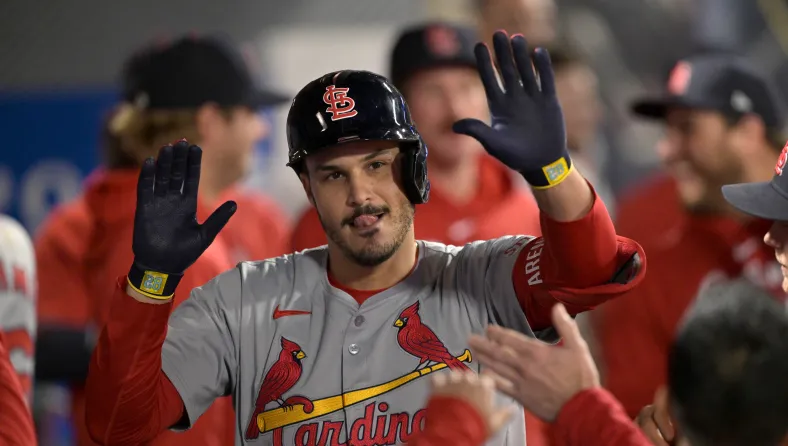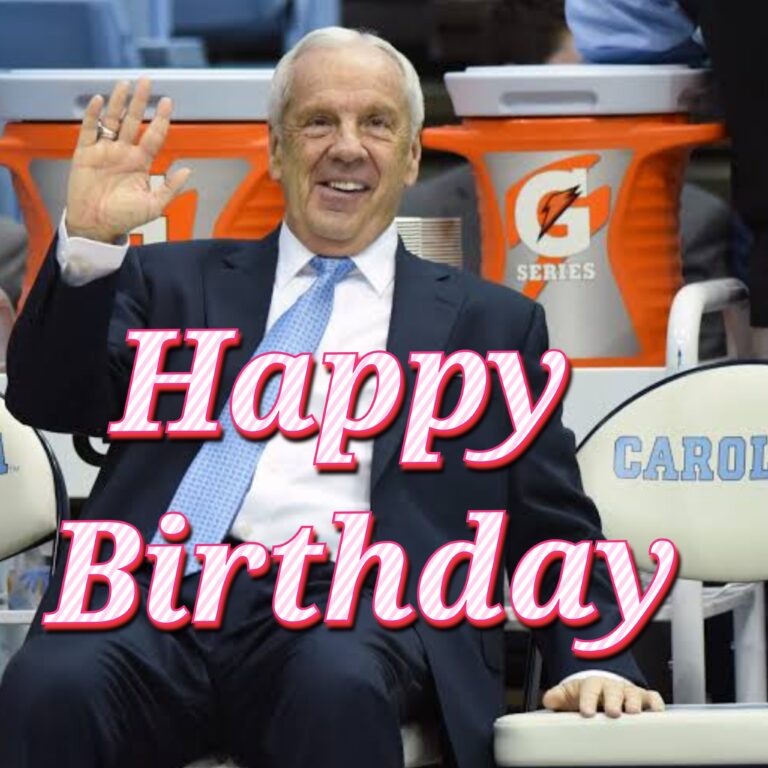
The idea of a Yankees-Red Sox battle for Nolan Arenado is one of the most tantalizing trade rumors in Major League Baseball, especially given the intense rivalry between these two historic clubs. However, despite the allure of such a blockbuster deal, the trade for Arenado may never materialize. There are several significant factors—ranging from financial challenges, organizational strategies, to market conditions—that could prevent this trade from ever getting off the ground. This piece will explore the potential barriers that could halt a Yankees-Red Sox pursuit of Arenado, examining the contractual constraints, both teams’ roster construction, and the dynamics of the trade market.
Introduction: The Intrigue of an Arenado Trade
Nolan Arenado, one of the most consistent and elite third basemen in MLB history, has long been regarded as one of the game’s premier defensive players. His hitting prowess, combined with his Gold Glove-caliber defense, makes him an attractive target for teams looking to strengthen their roster. Both the New York Yankees and Boston Red Sox—two of baseball’s most storied franchises—are perennial contenders in the American League East. The idea of them battling for Arenado’s services generates immense intrigue. However, despite the obvious appeal of acquiring one of the game’s top talents, several factors make this a difficult trade to execute.
1. The Contractual Hurdles: Arenado’s Massive Deal
One of the primary reasons this trade may never come to fruition lies in the sheer size of Nolan Arenado’s contract. When Arenado was traded from the Colorado Rockies to the St. Louis Cardinals prior to the 2021 season, he was signed to a $260 million, 8-year contract, which included a player option for the 2027 season. As of 2024, Arenado is still under contract with the Cardinals for significant amounts of money, including salaries of $35 million for 2024, $32 million for 2025, and $27 million for 2026. This hefty commitment, especially in the later years of the deal, could prove to be a major obstacle for both the Yankees and Red Sox.
The Yankees’ Financial Dilemma
The New York Yankees are known for their large payrolls, but they are also a team that manages its financial flexibility. As of 2024, the Yankees are already committed to significant contracts, including Aaron Judge, Giancarlo Stanton, and DJ LeMahieu. Adding Arenado’s salary would stretch their finances even further, especially with the looming luxury tax. The Yankees would need to create enough room in their budget for Arenado without jeopardizing their ability to make moves in future free-agent markets.
In addition, the Yankees have recently been more strategic in how they allocate resources, with an increased focus on developing talent through their farm system. The cost of Arenado’s contract would mean that the Yankees would likely have to move other high-salary players to balance out the financials, which could complicate trade talks. Given their payroll commitments and luxury tax considerations, a trade for Arenado may be more trouble than it’s worth for the Yankees unless St. Louis is willing to eat a large portion of the contract—a highly unlikely scenario.
The Red Sox and Their Financial Flexibility
Similarly, the Boston Red Sox have had their own financial challenges. After a series of big contracts (such as Rafael Devers and Trevor Story), the team has opted for a more balanced payroll approach. While Boston has not shied away from high-priced free-agent acquisitions in the past, they’ve been cautious about long-term commitments to players with large salary expectations.
Arenado’s contract would represent a significant financial burden, especially considering Boston’s other roster needs. The team is looking to strengthen its pitching staff and add more depth to its lineup. While Arenado would be a significant upgrade at third base, it’s unclear if the Red Sox would be willing to allocate that much money to one position player. The Red Sox have also been rumored to be targeting younger talent in trades rather than older players with substantial contracts, making Arenado a questionable fit from a financial and roster-building standpoint.
2. Roster Construction and Trade Package Considerations
Both the Yankees and the Red Sox would need to part with significant talent in order to land Arenado. The question, however, is whether either team would be willing to part with the necessary assets, given their current roster construction.
New York Yankees’ Potential Trade Assets
The Yankees have a wealth of talent, especially in their minor league system. Players like Jasson Dominguez and Anthony Volpe are regarded as two of the top prospects in baseball. However, trading away either of these players would create significant holes in the Yankees’ future plans.
Dominguez is seen as the future of the Yankees’ outfield, and Volpe is expected to be a key part of their infield for years to come. The Yankees are reluctant to trade away their top prospects, especially given the age of some of their existing roster members. Furthermore, trading for Arenado could put their long-term competitiveness at risk, particularly when considering that he is already on the back end of his prime years.
The Yankees could look to offer some of their depth players—like Clarke Schmidt or Oswald Peraza—but the Cardinals would likely demand significant pieces in exchange for a player of Arenado’s caliber. This could be a deal-breaker for the Yankees, who are generally hesitant to part with their future talent unless it’s for a clear upgrade in a position of immediate need.
Boston Red Sox’s Trade Assets
The Red Sox, on the other hand, have a deep farm system and a mix of established major league talent that could entice the Cardinals. Players like Triston Casas and Marcelo Mayer have been highly regarded as part of Boston’s rebuild, and the Cardinals would likely seek these types of high-ceiling prospects in any trade discussions.
However, the Red Sox are also invested in their future, and trading away too much young talent could be detrimental to their long-term plans. They’ve been careful about the players they move, especially given the status of their roster as a team still trying to climb back into postseason contention. As with the Yankees, Boston’s reluctance to part with future building blocks could prevent a deal for Arenado from progressing.
3. Organizational Strategy: Building for the Future vs. Win Now
Another critical factor to consider is the overall direction of both franchises. Both the Yankees and Red Sox are constantly in the conversation for a World Series, but they are at different points in their respective timelines.
Yankees: A Championship Window
The Yankees are always looking to add pieces that can help them win immediately. However, they are also cautious about the aging process of some of their core players like Stanton and LeMahieu, and they are trying to build a sustainable future with their young prospects. Arenado would fit into the Yankees’ win-now mentality, but at what cost? If the Yankees feel that they can address their needs through other avenues—such as the free-agent market or their minor-league system—then Arenado may not represent the ideal acquisition.
Red Sox: A Rebuilding Process
The Red Sox are still in a stage of retooling and rebuilding, and acquiring Arenado might not fit into their vision of the future. While they could make a push for the playoffs, especially with the right additions, the Red Sox might not be willing to mortgage their future for a player who is already 33 years old. Adding Arenado could create a logjam at third base, considering their investments in players like Devers, and it could be seen as an unnecessary financial burden.
4. The Rivalry Factor: The Complications of Trading Between Bitter Rivals
The Yankees-Red Sox rivalry is one of the fiercest in all of sports, and the idea of one team trading for a key player like Nolan Arenado could add an additional layer of complexity. Historically, trades between these two teams are rare, largely due to the intense rivalry. The optics of one team strengthening their roster with a player of Arenado’s caliber at the expense of the other could be a public relations nightmare, and both clubs might want to avoid the scrutiny that would come with such a high-profile move.
Conclusion: The Battle May Never Get Off the Ground
While the idea of the Yankees-Red Sox battling for Nolan Arenado is an intriguing one, there are significant obstacles preventing this deal from taking place. Financial constraints, trade package considerations, and organizational priorities all contribute to why such a trade may never get off the ground. Arenado’s contract is a massive hurdle, and the Yankees and Red Sox both have important decisions to make regarding their long-term roster construction.
In the end, while the rumor mill will undoubtedly continue to churn, it’s unlikely that Nolan Arenado will be suiting up for either the Yankees or the Red Sox in the near future. Instead, it’s more probable that the Cardinals will hold onto their prized third baseman unless another suitor emerges who can better meet their asking price.


